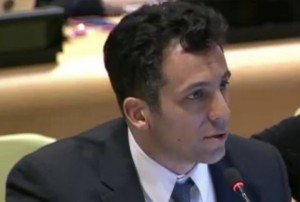ASA Calls For Medical Marijuana Protection
Help Not Handcuffs Randy Thompson Weighs In
An Americans for Safe Access [ASA] national report released last week calls for an end to contradictions between federal and state guidelines with regard to medical marijuana policies.
Showing that not only do opiate related deaths drop an average of 24.8% in states with medical cannabis laws, the report notes that the Department of Justice has spent an estimated $592 million to date in arrests, investigations, enforcement raids, pretrial services, incarceration, and probation.
In laying out a somewhat urgent roadmap in light of the Presidential election the ASA calls for the protection of the more than 2 million medical cannabis patients across the nation by imploring lawmakers to allow manufacturers, growers, and distributors to operate under state laws without fear of federal interference.
“Medical cannabis is reshaping the way we view modern medicine,” Steph Sherer, ASA’s executive director said in a written statement. “But in order to continue providing millions of patients with the medicine they need, Congress and the Obama Administration need to take action.”
Locally, Help Not Handcuffs founder Randy Thompson said New Jersey’s medical marijuana law is the nation’s most restrictive.
“[It limits] the number of ailments that a person can receive cannabis treatment for and also the number of strains of marijuana that can be used by patients,” Thompson [at right] said.
Thompson’s group advocates against drug criminalization by promoting harm reduction, recovery and fact-based drug policies.
But beyond the report’s focus on marijuana, Thompson warns of the state’s need to overcome its overall ‘intolerance of drug use and its penchant for supporting drug criminalization.”
Instead, his organization supports drug prevention and recovery programs such as Asbury Park’s recently adopted Sterile Syringe Access Program [SAP].
“It would go a long way to prevent overdoses like the surge in fentanyl overdoses we are reading about,” Thompson said. “Heroin that is adulterated with Fentanyl is not a consequence of heroin use, but a consequence of public-policy. Because the substance is criminalized and therefore unregulated, there is no quality control. Adulterated drug deaths are a public policy driven harm which can be prevented or at least greatly reduced by changes like regulating heroin for those who already have a heroin use disorder [Heroin Assisted Treatment Programs], and offering safe spaces to consume [Supervised consumption rooms/supervised injection facilities].”
According to the report, the Bush Administration spent an estimated $232 million in federal oversight, while the Obama Administration has spent $350 million.
There are 128,000 opiate related deaths annually as opposed to 0 deaths caused by cannabis.
The ASA recommendations include reflecting the most current science across DEA platforms and overhauling regulations that prevent medical marijuana research.
[Feature photo courtesy of ASA report]
————————————————————————-
Follow the Asbury Park Sun on Facebook, Twitter and Instagram.
The Asbury Park Sun is affiliated with the triCityNews newspaper.












